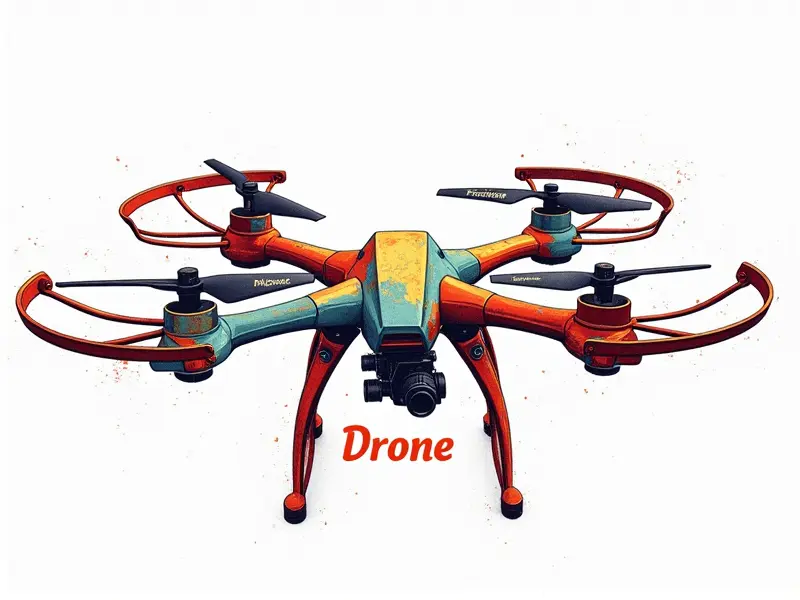Battery voltage?

Understanding Battery Voltage for Optimal Flight Time
Battery voltage is a critical factor in the performance and longevity of RC vehicles such as quadcopters, FPV racing drones, and helicopters. Proper management of battery voltage can significantly enhance flight time, prevent damage to your equipment, and ensure optimal performance during races or flights.
Understanding Battery Voltage for Optimal Flight Time
The voltage of a battery is the measure of its electrical potential energy per unit charge. In RC vehicles, this directly affects how long they can operate before needing a recharge. A higher voltage indicates more stored energy and thus longer operational time.
Why Battery Voltage Matters in RC Quadcopters
Battery voltage is crucial for quadcopters as it determines their lift capacity and flight duration. Higher voltages allow the motors to spin faster, providing better thrust and maneuverability. However, excessive voltage can lead to overheating and reduced battery life.
Maximizing Battery Life: Voltage Management Techniques
- Monitor Voltage Levels: Regularly check your battery's voltage before each flight to ensure it is within the optimal range.
- Battery Balancing: Use a charger with balancing capabilities to maintain equal charge levels across all cells in the battery pack.
- Avoid Overdischarge: Never let your battery voltage drop below the recommended minimum level to prevent damage and extend its lifespan.
The Impact of Battery Voltage on Drone Performance
Battery voltage directly influences a drone's performance by affecting motor speed, lift capacity, and overall stability. Higher voltages generally result in better flight characteristics but must be balanced with the risk of overloading motors or damaging batteries.
Troubleshooting Battery Voltage Problems in FPV Racing Drones
Common issues include voltage drops during high-speed maneuvers, which can cause sudden loss of power and affect race outcomes. To address these problems:
- Analyze Flight Logs: Review telemetry data to identify patterns or anomalies in battery performance.
- Clean Connections: Ensure all electrical connections are clean, tight, and free from corrosion.
- Upgrade Components: Consider upgrading batteries or motors if you frequently encounter voltage-related issues.
Avoiding Overdischarge: Safe Battery Voltage Levels
Overdischarging a battery can severely damage its capacity and lifespan. It is essential to maintain safe voltage levels, typically around 3.2V per cell for lithium-polymer (LiPo) batteries, to prevent irreversible harm.
Tips for Maintaining Proper Battery Voltage
- Use Quality Chargers: Invest in high-quality chargers that accurately measure and balance your battery packs.
- Monitor Temperature: Keep an eye on the ambient temperature as extreme conditions can affect voltage readings.
- Regular Maintenance: Periodically inspect batteries for signs of wear or damage to ensure they are in good condition.
Common Issues with Low Battery Voltage in RC Helicopters
Low battery voltage is a frequent concern in RC helicopters, leading to instability and reduced maneuverability. To mitigate these issues:
- Optimize Weight Distribution: Ensure that the helicopter's weight is evenly distributed to maintain optimal lift.
- Select Appropriate Batteries: Choose batteries with sufficient capacity for extended flight times without compromising performance.
- Leverage Flight Assist Features: Utilize advanced features like auto-hover and altitude hold to conserve power during critical maneuvers.
Maximizing Flight Time with Correct Voltage
To maximize flight time, it is crucial to maintain optimal battery voltage throughout the operation. This involves selecting batteries with appropriate capacity for your specific needs, monitoring voltage levels closely, and implementing effective management strategies.
The Impact of Battery Voltage on FPV Racing Performance
Battery voltage plays a pivotal role in determining the performance of FPV racing drones. High voltages offer superior speed and agility but must be balanced against the risk of overheating or overloading motors. Understanding these dynamics is key to achieving competitive success.
Conclusion
Maintaining optimal battery voltage is essential for ensuring peak performance, longevity, and safety in RC vehicles such as quadcopters, FPV racing drones, and helicopters. By adhering to best practices in voltage management and troubleshooting common issues, you can maximize flight time while safeguarding your investment.

